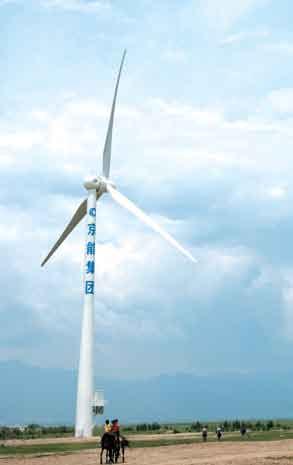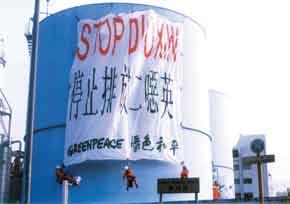
4 minute read
Conclusion
Conclusion – Lessons for future Games and Beijing beyond 2008
Beijing Beyond 2008
Beijing’s tremendous efforts and investment in environmental initiatives for the 2008 Games have allowed many of the city’s bid commitments to be met. What is particularly unique about the 2008 Games is that they will leave an important environmental legacy for the city of Beijing in areas such as transportation infrastructure, energy efficiency, and in the development of renewable energy, water, and waste treatment capacities.
However, in other areas, such as forestry and water minimization, Beijing has missed a key opportunity to use the Games to initiate world’s best practice and policies for all venues. In 2008 and beyond, it is important to look at how these successes can be adopted by other cities throughout China as well as how missed opportunities of the Games can inform future environmental policies.
Perhaps the greatest problem in Beijing’s attempt at hosting a Green Games is the limited engagement and minimal third party assessments of its environmental efforts. A lack of available independently verified data and limited ability for third parties such as NGOs to access information undermine the ability to evaluate Beijing’s environmental performance. More openness, transparency and efforts to engage civil society in decision making processes and environmental action could help to strengthen the development of green initiatives in the future.
China Beyond 2008
The 2008 Games will not only leave important legacies for the city of Beijing, but also important lessons for other Chinese cities. The development of public transportation systems and stricter emission standards will help to reduce air pollutants. These relocations coupled with technological upgrades are first steps in helping industries to move towards clean
production methods. The introduction of renewable energy and water reuse technologies to the city’s infrastructures will go a long way to push cities away from its reliance on fossil fuels and precious resources. Beijing can serve as an excellent case study for other Chinese cities, which are also struggling with the huge challenge of attempting to balance environmental sustainability and rapid development. The 2008 Games are the first time a developing country has placed sustainability and environmental initiatives at the forefront of its efforts to host the Olympics. The environmental problems Beijing and China face are immense. Beijing has come a long way and its efforts and achievements must not be underestimated. For a developing country such as China, the Games should be seen as an opportunity to showcase and to implement state-of-the-art energy saving technologies in new infrastructures and as a catalyst to extend Olympic achievements and successful environmental policies from Beijing to other Chinese cities well beyond 2008.
Many of Beijing’s problems are similar to other developing cities and, as China urbanizes, the lessons learned in the Beijing Olympics are vital for China to build sustainable cities beyond 2008.
Future Olympic Games - Recommendations
to the IOC
The environmental achievements of the 2008 Beijing Games demonstrate the positive impact that the Olympics can have on a city in raising the profile of environmental issues. Many of the missed opportunities during these and other attempts to host a green Games demonstrate the necessity for the IOC to set a minimal comparable set of standards and to place the environment at the forefront of policy considerations in the planning of international events. As global efforts towards addressing climate change intensify, and the impact of our ecological foot print becomes more evident, it is time for the IOC to issue some minimal mandatory standards for environmental protection to ensure that the goals expressed in its Agenda 21 are fulfilled. Future Olympic organizing committees and host cities should be required to meet environmental guidelines.
In addition to being evaluated by organizations such as the UNEP, the IOC should issue a set of standards for host cities so that their environmental efforts and achievements are comparable. Host cities should be required to use one of the existing and excellent independent evaluation systems to rate their environmental design and construction, as well as to make information available to partner organizations, universities, and the public to ensure greater transparency and to encourage rapid take-up of new green technologies after the Games.
From Sydney to Beijing, host cities have taken a number of excellent initiatives in combining environmental awareness with the Olympic Games. While a number of lessons have been learned, there is a need to strengthen efforts in other areas, such as sponsors’ environmental records, as well as the need for more transparency and independent assessments. It is high time for the IOC to issue a set of environmental standards for all host cities. The goals of the green Olympics can only be realized through these concerted efforts.

A wind turbine at the Guanting Wind Power Plant, Beijing’s first large-scale wind farm.










